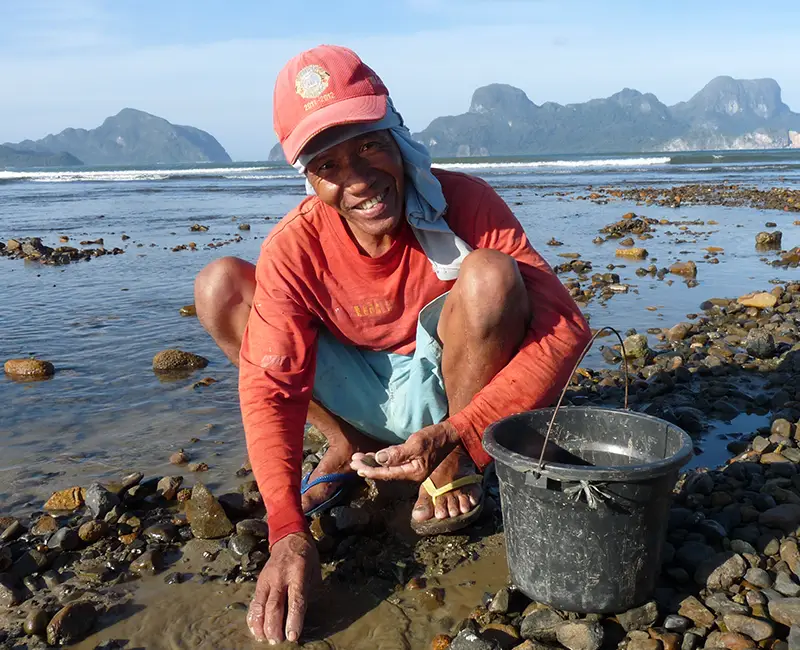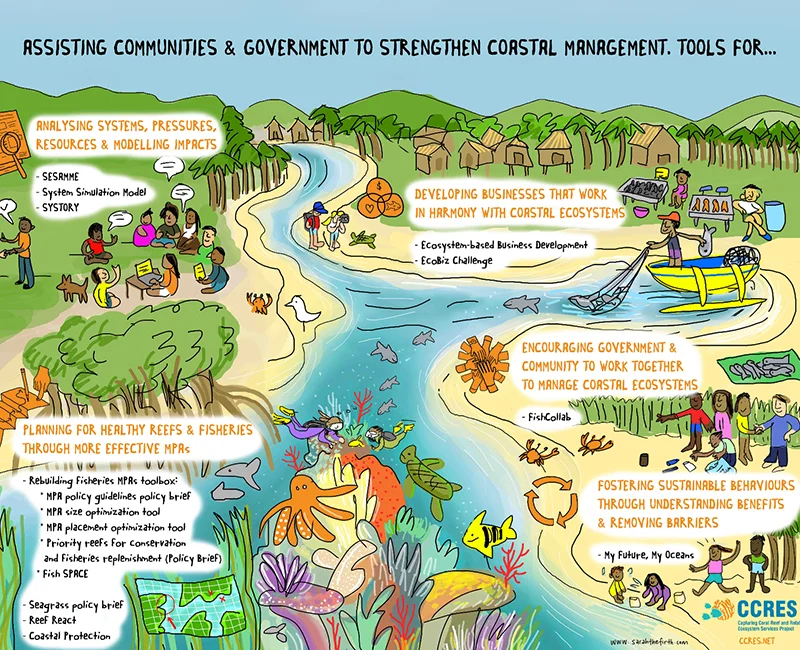Modifying behaviour to bring about sustainable changes in our civilisations is a perplexing, yet vital endeavour— especially in the developing world.
Currie has contributed to the mission of valuing every human, addressing the nexus between behaviour change and ecosystem services, as well as empowering women in coastal communities in a perennial pursuit of enacting positive change.
As the leader of the promoting behaviour change team in the Capturing Coral Reef and Related Ecosystem Services (CCRES) project, Currie advises two groups of social scientists, specialising in behavioural psychology, cultural anthropology, human ecology, social marketing and environmental psychology.
One of these research groups, led by PhD candidate Erik Simmons at The University of Queensland (UQ), has designed the behavioural change program, My Future, My Oceans, a low-cost behaviour change tool for empowering women leaders and promoting sustainable behaviours in coastal communities of developing countries.
Mr Simmons, together with behavioural scientists at UQ’s Triple P Innovation Precinct, designed the tool for local governments and NGOs to use to promote positive behaviours, including waste management, fishing practices and personal hygiene, in coastal communities.
Four months after the My Future, My Oceans pilot program began, not only are women at the pilot site, Bontolebang village on the island of Pasi Gusung at Selayar, Indonesia, continuing to collect plastic – the primary behaviour targeted – they are making other positive changes to how they live their lives.


Currie applies its training in the use of technical tools for community-based social marketing, its understanding of socio-ecological coastal systems and its skills in communications, engagement and outreach to support the research, development and promotion of My Future, My Oceans across southeast Asia.
More specifically, this support includes project design, stakeholder engagement, video production, producing reports, packaging and promoting tools, newsletter production and media coverage.
The CCRES project is funded by the World Bank, the Global Environment Facility and The University of Queensland. CCRES is Currie’s official environment partner and the pro-bono time gifted to the project counts towards the 5% of our consultants’ time donated to for-purpose and non-profit agencies that are seeking to solve social and environmental problems, locally, nationally and globally.